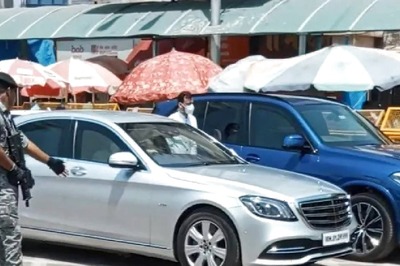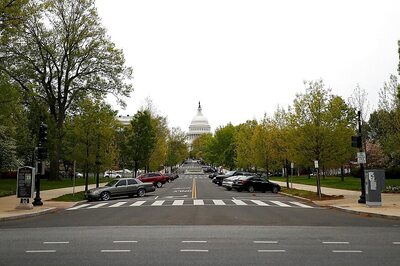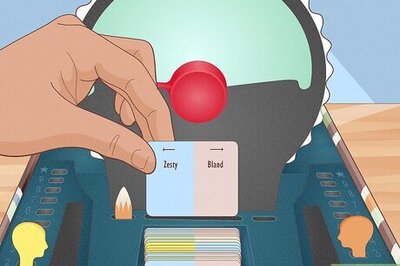
views
Tunisia: Protests erupted on Tuesday in Tunisia after the death of journalist Abderrazak Zorgui who set himself on fire to protest the economic problems in the North African nation.
Zorgui’s death sparked a series of protests and has become a nationwide concern.
Prior to his self-immolation, the journalist posted a video online describing his desperation and calling for a revolt. He expressed frustration at unemployment and the unfulfilled promises of Tunisia's 2011 Arab Spring revolution.
Authorities said Zorgui died of his injuries Monday soon after being taken to the hospital.
His actions prompted a protest on Monday night in in the struggling provincial city of Kasserine that degenerated into violence, with police firing tear gas to disperse protesters.
Interior Ministry spokesman Sofiane Zaag said on Tuesday that six police officers were injured and several people arrested in the protest.
A similar self-immolation by a street vendor lamenting unemployment, corruption and repression led to nationwide protests fueled by social media that brought down Tunisia's long-time authoritarian president in 2011. That ushered in democracy for Tunisia and unleashed similar movements around the Arab world.
Zorgui's funeral was being held Tuesday in Kasserine, which has come to symbolize Tunisia's economic problems and social tensions. Unemployment and poverty are high, and the area has struggled for years against extremists in the nearby mountains who are linked to al-Qaida and the Islamic State group.
The Tunisian National Journalists' Union called for demonstrations and a possible strike in response to the journalist's death. In a statement, it accused the state of contributing to Zorgui's death by not cracking down on corruption.
Tunisian reporters expressed solidarity with Zorgui, lamenting precarious conditions for freelancers with no legal protections and low pay amid Tunisia's struggling economy.
"The reasons for this young man's suicide are poverty and marginalization, as well as the fragile situation of most journalists," said Latifa Labiadh of radio station Amal.




















Comments
0 comment